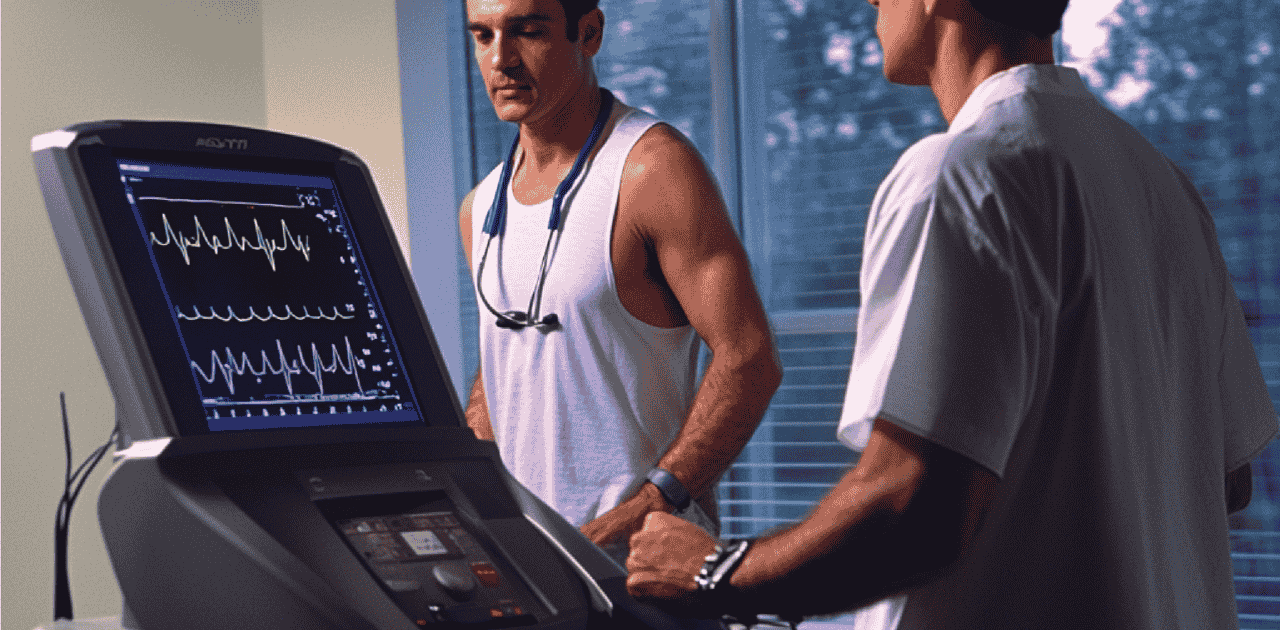When it comes to detecting how well your heart functions under stress, few diagnostic tools are as useful as a Cardiac Stress Test. This test evaluates how your heart responds to physical exertion and can reveal issues like blocked arteries, irregular rhythms, or reduced blood flow that might not be apparent when you are at rest.
This guide breaks down what a cardiac stress test is, when it is recommended, how it's performed, and answers the most common patient questions. Whether you’re facing symptoms or just following preventive steps, understanding this test will help you make informed decisions.
What is a Cardiac Stress Test?
A cardiac stress test is a procedure used to evaluate the performance of your heart during physical activity. As your heart works harder, problems like inadequate blood flow or irregular rhythms become more noticeable.
Key Facts:
- Simulates physical stress using exercise or medication
- Monitors heart rate, rhythm, and blood pressure
- Often combined with ECG or imaging (like echocardiogram or nuclear scan)
- Typically done in a hospital or cardiac diagnostic center
- Why Doctors Recommend a Cardiac Stress Test
Your doctor might suggest a stress test if you're experiencing symptoms or have risk factors that need further evaluation.
Common Reasons Include:
- Chest pain or discomfort
- Shortness of breath with activity
- Abnormal ECG or echocardiogram
- High risk of coronary artery disease
- Post-treatment evaluation for stents or bypass surgery
- Ongoing management of chronic heart conditions
Want to understand warning signs better? Read 10 Early Signs of Heart Problems You Should Never Ignore.
Types of Cardiac Stress Tests
There are different types of stress tests, and the right one for you depends on your health status and the doctor’s goal.
1. Exercise Stress Test (Treadmill Test)
- Involves walking or running on a treadmill
- Monitors ECG, heart rate, and blood pressure
2. Stress Echocardiogram
- Combines treadmill test with ultrasound imaging
- Shows how heart chambers and valves work under stress
3. Nuclear Stress Test
- Involves injecting a radioactive tracer to capture images
- Detects areas with poor blood flow
4. Pharmacologic Stress Test
- Used for patients unable to exercise
- Uses medication to mimic the effect of exercise
- How to Prepare for a Stress Test
- Proper preparation helps ensure accurate results and a smooth procedure.
Guidelines Before the Test:
- Do not eat or drink anything except water for 4-6 hours
- Avoid caffeine, smoking, and alcohol before the test
- Wear comfortable clothes and walking shoes
- Inform your doctor about medications, especially beta-blockers, If you have diabetes, discuss adjustments in insulin or medication
What Happens During the Cardiac Stress Test
Knowing what to expect can reduce anxiety and help you perform better during the test.
Step-by-Step Process:
- You will be connected to ECG electrodes and a blood pressure cuff
- For an exercise test, you start walking on a treadmill with gradually increasing speed and incline
- For pharmacologic tests, you will receive medication through IV
- The test usually lasts 10–15 minutes
- Healthcare providers will monitor you throughout the test
Mild shortness of breath and sweating are normal. Inform your doctor if you feel chest pain, dizziness, or extreme fatigue.
After the Test: What to Expect
The recovery is quick, and most people can resume daily activities soon after.
Post-Test Advice:
- Drink water and rest for a few minutes
- Inform the technician of any symptoms
- Resume regular medication as directed by your doctor
- Test results are usually available within 24–48 hours
Your doctor will review results and recommend next steps. This may include further testing or lifestyle changes. See How to Prevent Heart Disease: Lifestyle Tips That Work for guidance.
Risks and Safety of a Stress Test
While generally safe, there are a few risks, especially for those with underlying heart conditions.
Possible Complications:
- Irregular heartbeats
- Drop or spike in blood pressure
- Chest pain
- Very rare chance of heart attack
- A trained medical team is always present to handle any emergencies.
- What Cardiac Stress Tests Can Reveal
These tests provide valuable insight into how your heart functions under stress.
Information You Can Gain:
- Presence and severity of coronary artery blockages
- Effectiveness of heart medications
- Exercise capacity and fitness level
- Decision-making aid for further procedures (like angioplasty)
If blockages are suspected, your doctor may suggest Angiography: What Patients Should Know.
FAQs About Cardiac Stress Testing
Can I fail a cardiac stress test?
There’s no pass/fail. Abnormal results indicate the need for more testing or treatment.
Is it safe for senior citizens?
Yes, especially with pharmacologic tests designed for those unable to walk or run.
Can I eat before a stress test?
Generally, fasting for 4–6 hours is required. Confirm with your doctor.
How accurate is a stress test?
While very useful, it's not 100% definitive. It may be combined with other imaging tests for better accuracy.
Will I need the test again?
If your symptoms persist or new concerns arise, follow-up testing may be needed.
Final Thoughts: Know Your Heart's Limits
A Cardiac Stress Test offers a detailed look at how your heart handles exertion and can uncover hidden cardiovascular issues. Whether you're experiencing symptoms or proactively managing your heart health, this test is a reliable and safe step in diagnosis.
Talk to your doctor if you notice unusual symptoms or have risk factors like diabetes, high blood pressure, or family history of heart disease.
Authoritative External References:
- Mayo Clinic - Stress Test
- American Heart Association - Stress Testing



